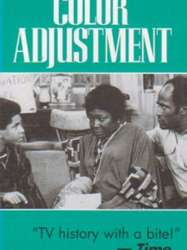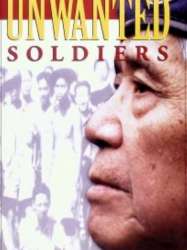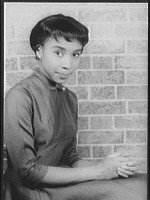Over the River...Life of Lydia Maria Child, Abolitionist for Freedom is a american film of genre Documentary with Diahann Carroll
Over the River...Life of Lydia Maria Child, Abolitionist for Freedom (2007)

If you like this film, let us know!
Over the River…Life of Lydia Maria Child, Abolitionist for Freedom is a 2007 documentary film and book about the life of Lydia Maria Child. The film was produced by Permanent Productions, Inc., written and directed by Constance L. Jackson, narrated by Diahann Carroll and features James Moses Black, Michele S. Patterson, Greta Muxworthy, Beth Lockhart and Jacob Conrad.
Actors
Trailer of Over the River...Life of Lydia Maria Child, Abolitionist for Freedom
Bluray, DVD
Streaming / VOD
Comments
Leave comment :
Suggestions of similar film to Over the River...Life of Lydia Maria Child, Abolitionist for Freedom
There are 13 films with the same actors, 8959 with the same cinematographic genres, 4998 films with the same themes (including 0 films with the same 7 themes than Over the River...Life of Lydia Maria Child, Abolitionist for Freedom), to have finally 70 suggestions of similar films.If you liked Over the River...Life of Lydia Maria Child, Abolitionist for Freedom, you will probably like those similar films :

Color Adjustment (1992)
, 1h26Directed by Marlon Riggs
Origin USA
Genres Documentary
Themes Films about racism, Films about television, Documentary films about racism, Documentary films about law, Documentaire sur une personnalité
Actors Norman Lear, Tim Reid, Steven Bochco, Diahann Carroll, Ruby Dee, Hal Kanter
Rating73%






500 Years Later (2005)
, 1h48Directed by Owen 'Alik Shahadah
Genres Documentary
Themes Films set in Africa, Films about slavery, Films about racism, Documentary films about racism, Documentary films about law, Documentary films about historical events, Documentaire sur une personnalité, Documentary films about politics, Political films
Actors Bill Cosby, M. K. Asante, Nelson George
Rating68%





The film visits five continents, and over twenty countries while charting the legacy of slavery and identifies a direct, or indirect link to crime, drugs, HIV/AIDS, poor education, inferiority complex, low expectations, poverty, corruption, poor health, and underdevelopment to African people globally.

Meeting David Wilson (2008)
Genres Documentary
Themes Films about slavery, Films about racism, Documentary films about racism, Documentary films about law, Documentary films about historical events, Documentaire sur une personnalité
Rating75%





 , 1h26
, 1h26Origin USA
Genres Documentary, Historical
Themes Films about slavery, Films about racism, Documentary films about racism, Documentary films about law, Documentary films about historical events, Documentaire sur une personnalité
Rating68%





The film focuses on the descendants of the DeWolf family, a prominent slave trading family from Rhode Island from 1769 to 1820, and the legacy of the slave trade in the North of the United States. The film follows ten family members as they retrace the triangle trade starting at Linden Place in Bristol, Rhode Island, the hometown of the DeWolfs. The family has been prominent in local businesses and banking, as academics, in the local Episcopal and other institutions, and organizing the Bristol Fourth of July Parade. The film goes with the family to Ghana, where the slaves were purchased and where they meet with current residents, and to Cuba, where James DeWolf owned three sugar and coffee plantations in the 19th century.

Loyalties (1999)
Genres Documentary
Themes Films about slavery, Films about racism, Documentary films about racism, Documentary films about law, Documentary films about historical events, Documentaire sur une personnalité

Rwanda pour mémoire (2003)
, 1h8Directed by Samba Félix Ndiaye
Origin France
Genres Documentary
Themes Films set in Africa, Films about writers, Films about racism, Documentary films about racism, Documentary films about law, Documentary films about war, Documentary films about historical events, Documentaire sur une personnalité, Documentary films about politics, Political films
In 1994, between April and July, the massacre of Tutsis and moderate Hutus left one million dead. Instigated by Fest’Africa, a dozen African authors met four years after the events as writers in residence at Kigali, to try to break the silence of African intellectuals on this genocide.

Goodbye Uncle Tom (1971)
, 2h20Directed by Francesco Prosperi, Gualtiero Jacopetti, Franco E. Prosperi
Origin Italie
Genres Drama, Documentary, Horror, Historical, Crime
Themes Films about slavery, Films about racism, Documentary films about racism, Documentary films about law, Documentary films about historical events, Documentaire sur une personnalité
Actors Gualtiero Jacopetti, Susan Hampshire, Franco E. Prosperi, Geoffrey Copleston
Rating65%





Le film a été tourné quelques années après Africa addio, à l'origine de polémiques idéologiques, dues à la description des difficultés en tous genres du continent africain après la fin du colonialisme européen.
 , 52minutes
, 52minutesGenres Documentary
Themes Films about slavery, Films about racism, Documentary films about racism, Documentary films about law, Documentary films about war, Documentary films about historical events, Documentaire sur une personnalité, Political films, Disaster films
Frederick Douglass and the White Negro is a documentary telling the story of ex-slave, abolitionist, writer and politician Frederick Douglass and his escape to Ireland from America in the 1840s. The film follows Douglass' life from slavery as a young man through to his time in Ireland where he befriended Daniel O'Connell, toured the country spreading the message of abolition and was treated as a human being for the first time by white people. His arrival in Ireland coincided with the Great Famine and he witnessed white people in what he considered to be a worse state than his fellow African Americans back in the US. The film follows Douglass back to America where he buys his freedom with funds raised in Ireland and Britain. Fellow passengers on his return journey include the Irish escaping the famine who arrive in their millions and would go on to play a major role in the New York Draft Riot of 1863 which Douglass could only despair over. The film examines (with contributions from the author of How The Irish Became White Noel Ignatiev amongst others) the turbulent relationship between African Americans and Irish Americans during the American Civil War, what drew them together and what drove them apart and how this would shape the America of the twentieth century and beyond.

Motherland (2010)
, 1h58Directed by Owen 'Alik Shahadah
Origin USA
Genres Documentary
Themes Films set in Africa, Films about slavery, Films about racism, Documentary films about racism, Documentary films about law, Documentary films about historical events, Documentaire sur une personnalité, Documentary films about politics, Political films
Actors Harry Belafonte, Abdulkadir Ahmed Said
Rating82%





Motherland is an epic documentary about the African continent from Ancient Egypt to the present. It is an overview of African history and contemporary issues but with the African people at the centre of the story. It is one of the first Pan-African features to be made.

Unwanted Soldiers (1999)
Origin Canada
Genres Documentary
Themes Films about racism, Documentary films about racism, Documentary films about law, Documentary films about war, Documentary films about historical events, Documentaire sur une personnalité, Documentary films about health care, Political films, Documentary films about World War II
 Connection
Connection
